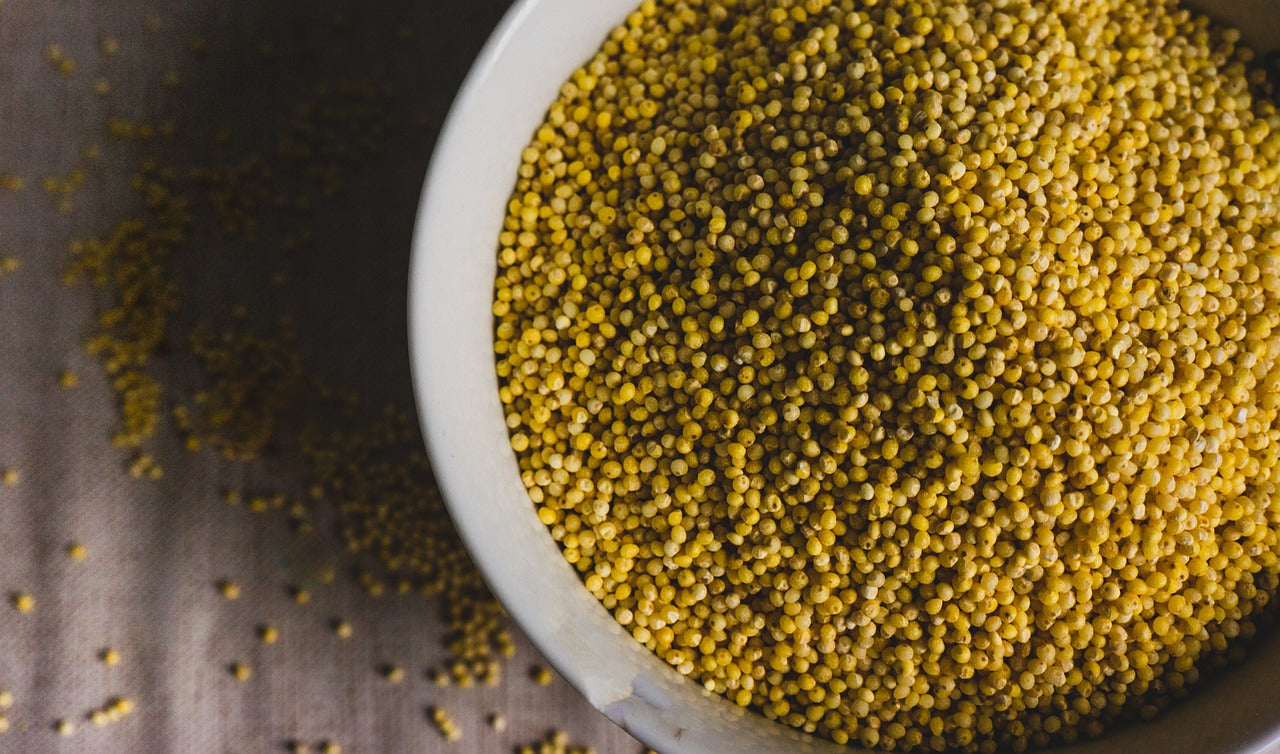

A Comprehensive Guide to Consuming Millets in Summers
Consuming nutritious food is crucial for maintaining good health, especially during the scorching summer months. One such superfood that has gained popularity in recent times is millets. Millets are ancient grains that are packed with an array of health benefits and are ideal for a summer diet.
What are Millets?
Millets are small-seeded grasses that are grown worldwide as cereal crops or fodder. They are highly nutritious, non-glutinous, and non-acid-forming. Millets are also rich in essential nutrients like vitamins, minerals, and proteins, making them an excellent addition to a balanced diet.
They are also known to have a high fiber content, which aids digestion and helps maintain a healthy weight. Millets are gluten-free and are a great alternative for people with celiac disease or those following a gluten-free diet.
The Magic of Millets in Summers
When the temperature rises, our bodies need food that can keep us cool and hydrated. Here is where millets come into play. Certain types of millets, known as summer millets, have body-cooling properties. They are perfect for the summer season as they help regulate body temperature and prevent heat-related ailments.
Millets such as Sorghum (Jowar), Finger millet (Ragi), Foxtail millet, Barnyard millet, and Kodo millet are known to be cooling in nature and are ideally consumed during the hot summer months.
Benefits of Including Summer Millets in Your Diet
Integrating millets into your summer diet can offer numerous health benefits. Here are a few key advantages:
-
Keeps Your Body Cool: Millets have amazing body cooling properties. They keep our bodies cool in hot weather and help in maintaining our body temperature at an optimum level.
-
Prevents Summer-Related Illnesses: Millets are high in nutrients and help in maintaining electrolytic balance and potassium levels in the body. They can help prevent summer-related illnesses like heat exhaustion and heat stroke.
-
Boosts Energy: Summers often bring a sense of exhaustion and lethargy. Many of us do not have good appetite during summer and experience reduced energy levels due to the increase in temperature. Millets, being easily digestible and energy-boosting, are a great option to include in our diet during summers.
-
Regulates Blood Pressure: High temperatures can cause electrolyte imbalance and can lead to an imbalance in blood pressure. Millets are a good source of magnesium, which helps to reduce increased blood pressure and reduces the risk of cardiovascular diseases.
-
Maintains Blood Sugar Levels: Millets have a low GI index and contain high amounts of fiber, which absorb slowly in the blood. They prevent sugar spikes and help in maintaining sugar levels, making them beneficial for people with diabetes.
Including Millets in the Diet
Millets can be included in our diet in a variety of ways. You can make a range of dishes using millets like millet porridge, salads, pilafs, and even baked goods. You can also add millets to your smoothies or use them as a base for your pizza crust.
One of the products that you can try is Naario's Bhakhri Snack, which is a healthy and tasty snack made from millets. It's a perfect choice for a mid-day snack or an evening munch.
Millet Muesli is another excellent way to include millets in your breakfast. It's a nutritious and delicious breakfast option that keeps you full for a long time.
You can also try Naario's 9 in 1 flour mix, which includes nine different types of grains, including millets. It's a great way to incorporate the goodness of millets into your regular rotis, bread, or any other dish that requires flour.
Dos and Don’ts When Consuming Millets
Like any dietary change, it's essential to follow certain dos and don'ts while incorporating millets into your meals:
Dos:
-
Select Cooling Varieties: Opt for millets that are cooling in nature, such as pearl millet (bajra) and foxtail millet. They help in regulating body temperature and preventing heat-related ailments.
-
Ensure Adequate Hydration: Millets have a high fiber content, which can sometimes lead to digestive issues if not consumed with ample water. Make sure to drink enough water throughout the day to aid digestion and prevent any discomfort.
-
Diversify Your Meals: Experiment with different millet recipes to keep your meals interesting and varied.
-
Include Fresh Produce: Complement your millet-based dishes with an array of fresh, seasonal fruits and vegetables. These additions will enhance the nutritional value of your meals and provide essential vitamins and minerals.
-
Practice Moderation: While millets are highly nutritious, consuming them in moderation is crucial. Incorporate them as part of a balanced diet, alongside other whole grains, proteins, and fats.
Don’ts:
-
Avoid Overconsumption: While millets are nutritious, excessive consumption can lead to an imbalance in your diet. Remember that a variety of foods is key to a well-rounded nutritional intake.
-
Don’t Skip Soaking: Some millets, like foxtail millet, benefit from soaking before cooking. Soaking helps reduce cooking time and improves their digestibility.
-
Limit Refined Additions: While preparing millet dishes, avoid excessive use of refined sugars, oils, and processed ingredients. The goal is to keep the meals wholesome and nourishing.
-
Don’t Rush Chewing: Chewing millet-based foods thoroughly aids digestion. Avoid rushing through your meals to allow your body to process the nutrients effectively.
-
Avoid Heavy Spices: During the hot summer months, it’s advisable to steer clear of heavy spices and excessive salt. Opt for milder, cooling herbs and spices to season your millet dishes.
-
Avoid Combining with Heavy Proteins: Try not to combine millets with heavy protein sources, as this might lead to digestive discomfort. Instead, pair millets with lighter protein options like legumes and cottage cheese.
In conclusion, millets can be a valuable addition to your summer diet, offering a plethora of nutritional benefits. By following the dos and don’ts mentioned above, you can harness the power of these ancient grains to stay nourished and energized during the hot months. Remember that a balanced and mindful approach to incorporating millets into your meals is key to reaping their full benefits and enjoying a healthier summer.
